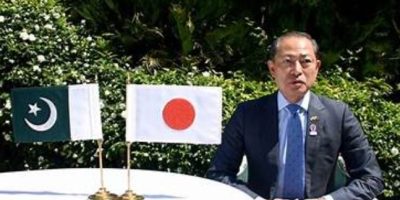COVID-19: Demand side shocks likely to dominate supply side

ISLAMABAD, APR 1 (DNA) – Countries having better social protection systems are in a better position to deal with COVID -19 pandemic, therefore, flexible budgeting should be introduced in Pakistan on a war footing by diverting funds from other areas for creating strong social protection systems.
This was the crux of an online dialogue titled: ‘Macroeconomic Policy Responses to COVID-19’ organized by Sustainable Development Policy Institute (SDPI) here on Wednesday.
Speaking on the occasion, economic experts from Pakistan and abroad agreed that the government needs to be more transparent regarding its financial measures and reassure that its people are its priority above anything else.
Dr Hamza Ali Malik, Director Macroeconomic Policy and Financing for Development Division at UNESCAP, said irrespective of their fiscal positions, all the countries, including Pakistan, should go ahead with health and social protection expenditures. “We all understand there is a confluence of multiple shocks from both the demand and supply side, however it is expected that demand side shocks will dominate the supply side considerations.” Contractions in economy will be of a much more concern than inflation, he said, adding that fiscal policy will have to take lead here and monetary measures will have to be there, but will essentially be complementing the lead by fiscal authorities.
Regarding interest rate, he said, it was lowered to boost businessmen confidence or acquire fiscal space rather it is a consequence of the measures that the global system has enforced such as massive and substantial liquidity injections all over the world. In Pakistan, he said, it is a natural consequence, as how the balance sheets work. “Central banks have to step in and make sure that their actions are consistent in terms of prevailing market interest rates and they have to lower interest rates.” He said the decision will be primarily driven by how much liquidity and credit support is needed to run the system.
Dr Malik said that the UN is trying to promote regional co-operation towards the creation of a global emergency health fund. Debt relief or debt deferral mechanisms need to be negotiated with global lenders in particular, he said, adding that the UN system wants to engage all the countries so that governments commit that they will have tangible improvements in the areas, which are beyond pure economic considerations. “Moreover, it is evident that there is less pollution due to a decline in economic activity, this should be taken as an opportunity to support and prioritize low carbon footprint industries and businesses, to make economies more sustainable over time. The digital divide also has to be addressed, Internet should be accessible to all as education and other activities now depend on it, he maintained
Mr. Malik noted that the IMF will be very receptive this time regarding the lowering of targets, and an emergency meeting of Monetary and Fiscal Coordination Board (MFCB) should have been called which is the existing mechanism for consultations to feed its advice to the National Economic Council (NEC).
Dr Vaqar Ahmed, SDPI Joint Executive Director, said central banks across the world were quick to respond while treasuries were slow to respond, so this calls for treasuries to change the way they operate in distressed times. Fiscal policy response should be clear, quick and transparent.
“We need to revive our trust in rule based fiscal policy, as the confidence of the treasury to act will also be boosted by this.
A rule based fiscal policy will not only help in managing the crisis phase but also the post crisis phase.” Moreover, he said, greater participatory democracy in decision-making is needed, as the stimulus package that was announced without participation and consultation from the business community created great resentment among them. Finally, he underlined the importance of the consultative process which is necessary as the government has approached the IMF for the Rapid Finance Instrument.
Now, it’s time to integrate databases, as currently there is no integration between FBR and Ministry of Commerce or FBR and Ministry of Finance. He said at least 13 tax departments across the country are also not linked.
“Moreover, cursory analysis reveals the policies adopted by the each of the provinces has overlaps because systems and data were never integrated.” This compromises the efficiency of public spending and especially when donors start supporting Pakistan in the post crisis phase, he said, concluding that these overlaps need to be avoided.=DNA
=======
Related News

CDA launches Islamabad safety drive
ISLAMABAD, Jan 30: The Capital Development Authority on Friday launched an extensive campaign to coverRead More

Direct air links to further expedite bilateral trade, says Japanese envoy
FAISALABAD, Jan 30 (DNA): Ambassador of Japan Akamatsu Shuichi has said that direct air linksRead More


Comments are Closed